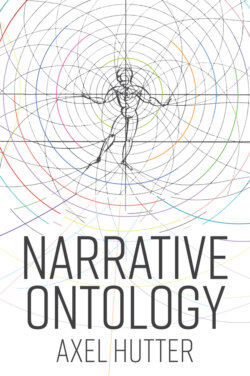Читать книгу Narrative Ontology - Axel Hutter - Страница 6
Foreword
ОглавлениеMarkus Gabriel
According to a widespread conception which might as well be called a worldview, reality is intrinsically meaningless. By its very nature, it is utterly foreign to our human desire to find meaning in our lives, an opaque in itself, at best explainable in terms of causal, natural-scientific models. Yet this very worldview raises the issue of how to conceive of our experience of meaning and value that seems to be constitutive of what it is to be someone, a subject or a self.
Axel Hutter’s magnificent book questions this worldview by putting our quest for meaning centre stage. To be someone is not some kind of illusion hovering over the meaningless ocean of physical reality. Rather, being someone, a self, is inextricably bound up with our capacity to tell and understand stories in which we are involved. In short, Hutter rediscovers the depth of narrations without falling into the trap of accepting the meaninglessness of the universe only in order to confront it with the desperate attempt to cover up an existential void with mere myth. In that important sense, Hutter’s narrative ontology resists the romantic temptation of accepting the disenchantment by wishing to re-enchant nature.
His starting point is a precise and astonishingly revealing, innovative analysis of the idea of repetition, so prominent in the existentialist tradition. He bases his insight on a philosophical reading of one of the most difficult modern novels, Thomas Mann’s late magnum opus, Joseph and His Brothers. In Narrative Ontology, he manages to demonstrate how we can overcome nihilism by way of drawing on Mann’s insight that we always have to tell and retell stories that are transmitted to us so as to resonate with the core of human subjectivity, i.e., our capacity to lead a life in light of a conception of ourselves. Subjectivity is the indispensable starting point of every enterprise of making sense of what it means for us to exist, which includes the incoherent attempt to reject the very idea of meaningfulness.
Hutter’s book not only offers a convincing and, in many respects, pathbreakingly novel account of a narrative ontology of the self, but at the same time provides the reader with an account of normative self-constitution, of what we call ‘Geist’ in our neck of the woods. Narrative Ontology is a mature and important piece of contemporary philosophy in Germany, a work that equally addresses issues in the theory of subjectivity, normativity and general ontology.
Given the importance of the issues dealt with in the pages that follow and the innovative way of dealing with them, I hope that the book will receive the reception it deserves also in the English-speaking world.
